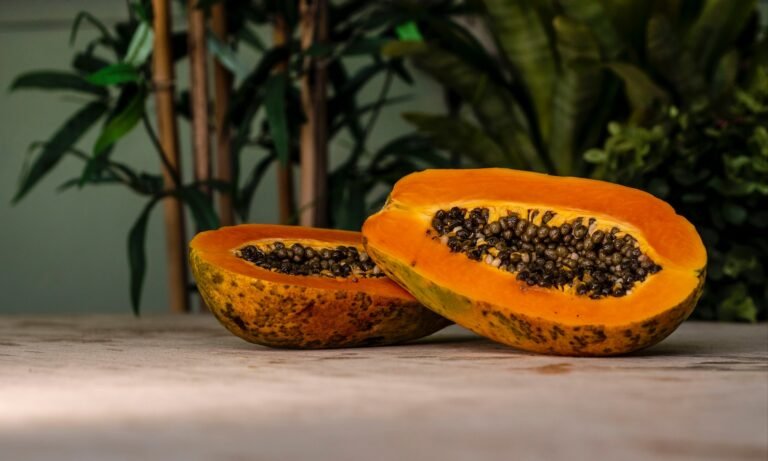Table of Contents
Are Grapes Bad For Diabetics? Here’s The Juicy Details
Are grapes bad for diabetics? It’s a question that lingers in the minds of many individuals managing diabetes. Grapes, those delicious little orbs bursting with sweetness, have long been hailed as a healthy snack option. But when it comes to diabetes management, things can get a bit more complicated. In this blog post, we’ll take an in-depth look at the nutritional value of grapes and explore whether they are truly good or bad for diabetics. So if you’re ready to unravel the grape mystery once and for all, keep reading!
The nutritional value of grapes
Grapes are not only a delicious and refreshing fruit, but they also pack a nutritional punch. They are low in calories and fat, making them a great option for those watching their weight. Additionally, grapes are rich in vitamins and minerals that contribute to overall health.
One of the standout nutrients found in grapes is vitamin C. This powerful antioxidant helps boost the immune system and protects against cell damage. Grapes also contain vitamin K, which plays a role in blood clotting and bone health.
In terms of minerals, grapes provide potassium, which is essential for maintaining healthy blood pressure levels. They also contain small amounts of calcium and iron.
Another notable component of grapes is their high water content. Staying hydrated is important for everyone, but especially for diabetics who may experience increased thirst due to elevated blood sugar levels.
It’s worth mentioning that while grapes do offer some nutritional benefits, they should still be consumed in moderation by individuals with diabetes due to their natural sugar content. It’s always best to consult with a healthcare professional or registered dietitian to determine appropriate portion sizes based on individual needs.
When enjoyed as part of a balanced diet, grapes can be incorporated into a diabetic meal plan without causing significant spikes in blood sugar levels. Remember to practice portion control and pair them with other foods that help slow down digestion to minimize any potential negative effects on blood glucose levels.
Are grapes good or bad for diabetics?
Are grapes good or bad for diabetics? This is a common question among individuals with diabetes who may be concerned about the impact of fruit on their blood sugar levels. Let’s explore the topic and shed some light on whether grapes are a suitable choice for those managing diabetes.
Grapes, like most fruits, contain natural sugars. However, they also offer various nutritional benefits that can be valuable to individuals with diabetes. Grapes are rich in antioxidants, fiber, vitamins C and K, as well as minerals such as potassium and manganese.
The glycemic index (GI) of grapes is relatively moderate compared to other fruits. The GI measures how quickly carbohydrates in food raise blood glucose levels. With a GI score ranging from 43 to 53 depending on the variety of grape consumed, they have a minimal impact on blood sugar when eaten in moderation.
Moreover, grapes have been found to possess certain properties that may benefit individuals with diabetes. Resveratrol, an antioxidant compound found in red grapes specifically, has shown potential in improving insulin sensitivity and reducing inflammation associated with diabetes.
However, it’s important to keep portion sizes in mind when consuming grapes if you have diabetes since they still contain carbohydrates that can affect blood sugar levels. Moderation is key to preventing spikes in glucose levels while enjoying the nutritional benefits of this tasty fruit.
While grapes do contain natural sugars and carbohydrates that can influence blood sugar levels if consumed excessively; they can still be enjoyed by people with diabetes when incorporated into a balanced meal plan within appropriate portions. It’s always best to consult your healthcare provider or registered dietitian for personalized advice based on your individual needs and medical history.

The glycemic index of grapes
The glycemic index (GI) is a measure of how quickly carbohydrates in food can raise blood sugar levels. For diabetics, it is essential to monitor their carbohydrate intake and choose foods with a low GI to help maintain stable blood sugar levels.
When it comes to grapes, the glycemic index varies depending on the type and ripeness of the fruit. Generally, grapes have a medium GI ranging from 43-53. This means that they can cause a moderate increase in blood sugar levels when consumed.
However, it’s important to note that the glycemic index should not be the sole factor considered when determining whether grapes are good or bad for diabetics. The overall nutritional profile of grapes plays an important role as well.
Grapes are packed with beneficial nutrients such as vitamins C and K, antioxidants like resveratrol, and dietary fiber. These components contribute to various health benefits including improved heart health and immune function.
In terms of managing diabetes, consuming grapes in moderation can be part of a healthy diet plan. Pairing them with protein or healthy fats can help slow down digestion and minimize any rapid rise in blood sugar levels.
It’s worth noting that individual responses to different foods may vary among diabetics due to factors such as insulin resistance or medication use. Monitoring blood sugar levels after consuming grapes will provide valuable insights into how they affect each person personally.
Incorporating portion control and considering personal preferences alongside GI values can help individuals with diabetes make informed decisions about including grapes in their diet. As always, consulting with a healthcare professional or registered dietitian is recommended for personalized guidance based on specific needs.
The benefits of grapes for diabetics
The benefits of grapes for diabetics are numerous and can play a crucial role in managing blood sugar levels. Grapes are packed with essential nutrients like vitamins C and K, as well as antioxidants that help fight inflammation and protect against cell damage.
One major benefit of grapes is their low glycemic index (GI), which means they have a minimal impact on blood sugar levels. This makes them an excellent choice for individuals with diabetes who need to monitor their carbohydrate intake.
Furthermore, the high fiber content in grapes can aid in controlling blood sugar by slowing down digestion and preventing rapid spikes in glucose levels. Fiber also promotes feelings of fullness, which can be beneficial for weight management – another important aspect of diabetes management.
In addition to these advantages, research suggests that the polyphenols found in grapes may have potential anti-diabetic effects. These compounds have been shown to improve insulin sensitivity and reduce oxidative stress, both of which are critical factors in managing diabetes.
It’s worth noting that while grapes offer many benefits for diabetics, portion control is still essential. Like any other fruit, consuming too many grapes at once can raise blood sugar levels. It’s important to work with a healthcare professional or registered dietitian to determine the appropriate serving size based on individual needs.
Incorporating moderate amounts of grapes into a balanced diet can provide valuable nutritional support for individuals with diabetes without negatively impacting blood sugar control. Remember to always consult your healthcare provider when making dietary changes or adjustments to manage your condition effectively
The drawbacks of grapes for diabetics
The drawbacks of grapes for diabetics are worth considering, especially if you have diabetes and enjoy eating this juicy fruit. While grapes offer many health benefits, they also come with a few downsides.
One drawback is their high sugar content. Grapes are naturally sweet due to their fructose content, which can cause blood sugar levels to spike when eaten in large quantities. This can be problematic for individuals with diabetes who need to closely monitor their blood sugar levels.
Another drawback is the carbohydrate content of grapes. Carbohydrates affect blood sugar levels, so it’s important for diabetics to consume them in moderation. Grapes contain around 15 grams of carbohydrates per cup, which can add up quickly if you’re not careful about portion sizes.
Additionally, some people may experience digestive issues after consuming grapes. The high fiber content in grapes can lead to stomach discomfort or even diarrhea in sensitive individuals.
While antioxidants found in grapes are beneficial for overall health, certain compounds like resveratrol may interfere with insulin sensitivity in some individuals with diabetes.
While grapes do have nutritional value and offer benefits such as being rich in vitamins and antioxidants, there are factors that make them less ideal for those managing diabetes. It’s important for individuals with diabetes to consult with their healthcare team regarding appropriate portion sizes and frequency of grape consumption based on individual needs and dietary restrictions.
Conclusion
When it comes to the question of whether grapes are bad for diabetics, the answer is not a simple yes or no. The nutritional value of grapes and their impact on blood sugar levels must be taken into consideration.
Grapes have a moderate glycemic index, which means they can cause a gradual increase in blood sugar levels rather than a sudden spike. This makes them suitable in moderation for individuals with diabetes.
Moreover, grapes are packed with beneficial nutrients such as fiber, vitamins, and antioxidants that can promote overall health and well-being. They have also been found to improve heart health and reduce the risk of certain chronic diseases.
However, it is important for diabetics to consume grapes in moderation due to their natural sugars. Portion control is key, as larger servings may lead to an undesirable rise in blood glucose levels.
While grapes can be included as part of a balanced diet for diabetics, portion control is crucial. It’s always advisable for individuals with diabetes to consult their healthcare provider or registered dietitian before making any significant changes to their diet.
FAQ’s
1. Can grapes raise blood sugar levels in diabetics?
While grapes do contain natural sugars, they also have a low glycemic index and are rich in fiber, which can help regulate blood sugar levels. However, it is important for diabetics to monitor their portion sizes and consume grapes in moderation.
2. How many grapes can a diabetic eat?
The recommended serving size of grapes for diabetics is about 15 grams of carbohydrates, which is roughly equivalent to 17 small grapes or half a cup. It’s best to consult with a healthcare professional or registered dietitian to determine the appropriate portion size based on your individual needs.
3. Are there any specific types of grapes that are better for diabetics?
Different varieties of grapes may have slightly different nutritional profiles, but overall, all types of grapes can be beneficial for people with diabetes when consumed in moderation as part of a balanced diet.
4. Should I avoid eating grape products such as raisins and grape juice if I have diabetes?
Raisins and grape juice can be more concentrated sources of sugar compared to fresh whole grapes due to the removal of water content during processing. Therefore, it’s important to exercise portion control when consuming these grape products and consider their impact on blood sugar levels.
5. Are there any other fruits that are better than grapes for diabetics?
There isn’t one single fruit that is inherently better than others for individuals with diabetes. The key is to focus on incorporating a variety of fruits into your diet while being mindful of portion sizes and monitoring your blood glucose levels regularly.
It’s always recommended to consult with a healthcare professional or registered dietitian who specializes in diabetes management before making any significant changes to your diet.
Grapes can be enjoyed by individuals with diabetes as part of a healthy eating plan when consumed in moderation. They offer numerous health benefits including antioxidants, vitamins, minerals, and fiber. However, it’s important to be mindful of portion sizes and consider individual







